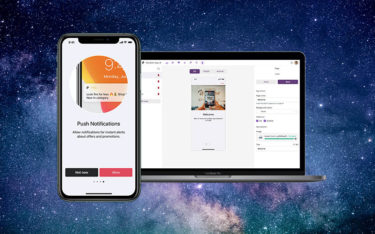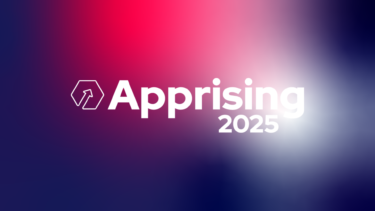Poq Platform Release: Phobos is here!

Much like its lunar Mars namesake, Phobos rounds up a number of Poq platform enhancements first introduced in earlier versions, while pointing the way towards some seismic plans to increase developer enablement. This new v19 will help Poq clients capture growing consumer demand for in-app shopping.
Poq Elevate Backend SDK
The Poq Elevate Backend software development kit (SDK) is a collection of libraries that enable external partners to integrate with the Poq platform. In future, this SDK will allow partners to host the backend services for our apps, while also speeding up the rate of development for backend integrations managed by Poq’s internal teams.
The Backend-For-a-Client (BFC) pattern is designed to give each client the opportunity to customize the platform in their own way and open up a new, extensible way for clients and partners to build new and differentiated app features and functionality moving forwards.The Poq Product team is now in the process of outlining a strategic adoption path for migrating clients onto the SDK and new BFC pattern.
AppsFlyer Attribution Integration
Poq clients can now take advantage of integration with a new mobile measurement partner (MMP) announced last month to enhance appcommerce marketing strategies and results. The AppsFlyer SDK is now available as part of the v19 release, including the forwarding of some Poq platform events onto AppsFlyer.
The integration will enable Poq mobile app clients to rapidly scale their appcommerce marketing efforts and drive more effective customer acquisition and retention campaigns for their apps.
Joint iOS and Android clients will gain insight into how their mobile apps are performing and driving growth, in comparison to other channels such as mobile web. Beyond measurement and attribution, the AppsFlyer platform also offers clients a number of other valuable features, including ad fraud protection, audience management and uninstall attribution tracking.
Onboarding Improvements
Phobos has expanded Poq’s iOS and Android Onboarding feature to include a screen for the Login/Register process, as well as a new “Get Started” screen.
We have also improved the opt-in process for iOS push notifications. Instead of using our own, “Poq prompt” three times and calling it quits, we now trigger the Apple prompt afterwards, to make sure that the user has the option to change their settings in future. The opt-in feature is now also easier to customize. For the original information on the prompting mechanism, please reference Poq v17 Release blog.
In order to access these Onboarding improvements without additional configuration work, clients must be using the new feature implemented with v17. They can then use these improvements when they migrate to this latest version, v19.
Based on some great additional feedback from our teams, we’ve made some other, additional improvements to our Onboarding feature.
Version 19 creates an optional My Account screen that gives the end-using shopper the option to sign up or register from the onboarding flow. We hope to encourage users to do this at the beginning of their journey so it doesn’t interrupt their flow later when trying to make a purchase.
We have also created a “Get Started” screen for clients not using the My Account or Push Prompt screens. This gives the end user a clear route to exiting the onboarding process and beginning their shopping experience.
Please contact your Customer Success representative to find out more about any of these new capabilities and features.
By Chris Long, Senior Product Manager, Poq




